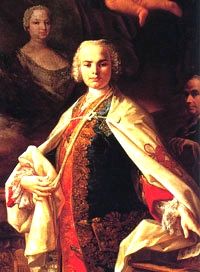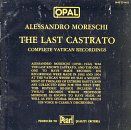|
Parallels between castration 200 years ago
Like circumcision, castration was practised from ancient times. It was probably first performed on enemy captives to prevent them reproducing. It was then used as a punishment for sexual crimes, and as an extreme form of austerity for priestly castes. Persians, Indians, Chinese and Arabs have used it. In China and India it has served as a crude kind of sex-reassignment surgery. The hijra of India are commonly called "eunuchs" though many may be born intersexed. It is still practised today among certain Ethiopian ethnic groups. Greeks and Romans traded widely in eunuchs from Africa and Asia. It had been observed that castrated animals were usually more docile and easier to domesticate, and it was a logical step to the use of castrated and more managable slaves for unpleasant tasks. Certain pagan cults adopted castration, especially the cult of Cybele which required emasculation for its priests. From the start of the Christian era the Church severely condemned it, and openly attacked figures such as Leonce of Antioch and Origen who had chosen to castrate themselves. Better known is the widespread castration in the Muslim world, notably of the eunuchs of the harem, responsible for the chastity of the Sultan's wives and guaranteeing his paternity of their children. Shortly before the capture of Constantinople, the Byzantine Empire was the first to make public use of eunuch singers in the churches.
The castrato voice has been described as having "the pitch of a woman with the power of a man", but other factors were at work, such as the shape of the castrato's larynx and ribcage, and the long years he had spent studying special techniques of breath control and voice production. The "golden age" of castrato singers (called "eunuchs" while training, and then "sopranists" and "contraltists") lasted from the beginning of the 17th Century to the beginning of the 20th, during which time castrati were admitted to the Papal Choir. The operation was committed almost entirely in Italy, but the singers were in enormous demand throughout Europe, both for church choirs and opera. Some gained a fantastic following, more than comparable to today's rock stars, and enormous wealth and power. In 1645, Queen Christina of Sweden called a truce in the war with Poland so that the sopranist Baldassare Ferri could be brought to sing for her. The most famous, and arguably the best, was Carlo Broschi, "Farinelli" (1705-1782), who has become the subject of an opera, a novella and a film ("Farinelli, Il Castrato", Belgium 1994, available on DVD and VHS from Amazon.com).  Farinelli A personally charming man (when many castrati were understandably bitter) with enormous technique and artistry, Farinelli travelled widely, spending 22 years as the right-hand man to King Philip V of Spain, first curing the king's depression with his singing. The artistic climate of Spain in this period was known as "Farinellism". It is not known how many boys were castrated for music's sake, but about 1780 there were more than 200 in chapel choirs in Rome alone, so the total over those two centuries must have run into many thousands - not all of whom succeeded as singers. The fiction was maintained that only those boys who asked for it were castrated, but the idea that a seven-year-old could begin to understand the implications of the operation, especially when visions of wealth and fame were dangled before him, is and was ridiculous. Farinelli's operation was allegedly made necessary by the kick of a horse. Opium was used as an anaesthetic, or the carotid arteries in the boy's neck were compressed briefly, rendering him unconscious. The death-rate from haemorrage or infection following castration is estimated at 10-80%, depending on the practitioner. The letter of Charles de Saint-Evremond (c.1685) encouraging a young page called Dery to be castrated bears some creepy similarities with arguments for circumcision today:
A popular story that Italian castrators commonly advertised their services on signboards (the way circumcisors do in the Philippines) has never been confirmed. Although castrati were worshipped, castrators always risked being excommunicated. It is striking how well-forgotten the importance of the castrato in 17th and 18th century music has become. Gregorio Allegri was a castrato, and his famous Miserere was written for castrati to sing in the Sistine Chapel. Mozart wrote several operatic roles for castrati, and Exultate Jubilate especially for the castrato Rauzzini. (In The Abduction from the Seraglio he assigns a deep bass voice to the eunuch Osmin as a joke.) Gluck created Orfeo ed Euridice in 1762 with the castrato Guadagni in the role of Orfeo, whose aria Che faro is still popular today. Guadagni (whom Watkins Shaw coyly calls a "male alto") was also the first person to sing the alto solos of Handel's Messiah, such as "He was despised". All these are now sung by boys or women. Objections to castration were mainly visceral: that it destroyed virility, that it was "against nature", that it was blasphemous. Outside Italy, music lovers deplored the affectation of high-voiced eunuchs singing heroic male roles. Unsurprisingly, the human right of the boy to retain his bodily integrity contrary to his father's wishes carried little weight before Tom Paine wrote The Rights of Man. Unsurprisingly too, many castrati were estranged from their parents, Mustafà exclaiming, "If by chance I learnt at this moment that it was my father who reduced me in this way, I would kill him with this knife." Not all resented it. Carestini and Salimbeni are reported to have laughed at the pity of intact people. Like many circumcised men today, they didn't miss what they'd never enjoyed. Castration was condemned by Voltaire and Rousseau, but defended by Stendhal, in familiar terms.
Castrati faded from the operatic stage early in the 19th century with changing tastes, but they continued in church music throughout the century. Pope Leo XIII ruled in 1902 that castrati would not be admitted to the Sistine Chapel, though those already there would be allowed to stay on. The last, Allesandri Moreschi, left in 1913 and died in 1922. (A 1903 recording of his voice is available on CD Will it take another hundred years before most people look on the circumcision of boys with something like the horror with which we all now view their castration? Mainly based on "The World of the Castrati" by Patrick Barbier Related pages: |
